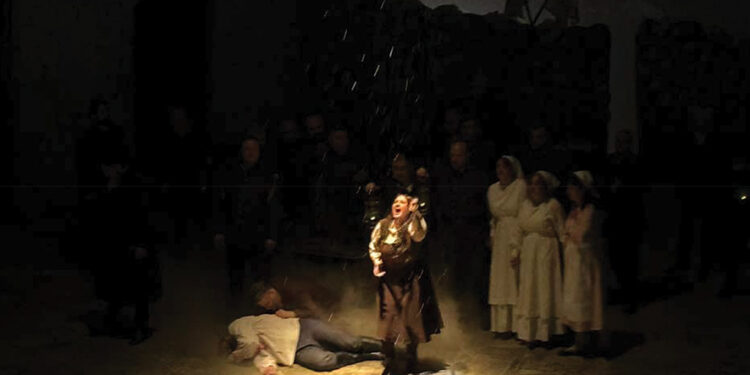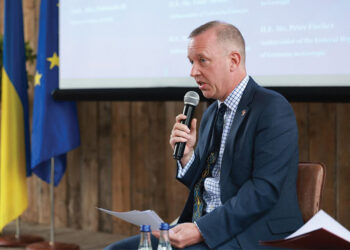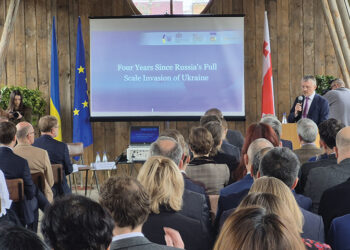When a night at the opera leaves you reeling like you’ve just watched a war movie spliced with a brutal soap opera, you know the production has done something right, and something deeply disturbing. The Tbilisi Opera and Ballet State Theater’s audacious double bill of Jules Massenet’s La Navarraise and Pietro Mascagni’s Cavalleria Rusticana hurls the audience into the crucible of verismo, where characters love too hard, suffer too much, and die too easily. This is opera with clenched fists and tear-streaked cheeks—no powdered wigs, no pastel fantasies, only raw nerves and blood under the fingernails.
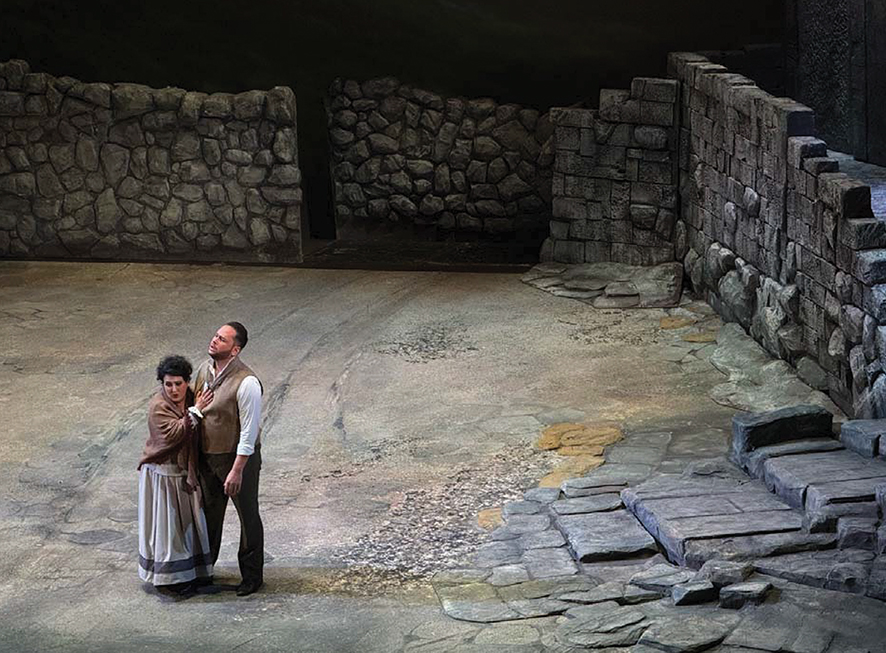
In reviving these two operas, both one-act detonations of operatic intensity, the company not only echoes their late 19th-century Georgian premieres, but reframes their violence and psychological devastation for a modern audience. Directed by Victor Garcia Sierra, and musically steered by maestro Zaza Azmaiparashvili, this evening is less a performance and more a series of emotional stabbings. The fact that both works premiered in Tbilisi over a century ago lends the event an eerie circularity, as if these ghosts have returned to haunt us again—sharper, louder, and even more tragic.
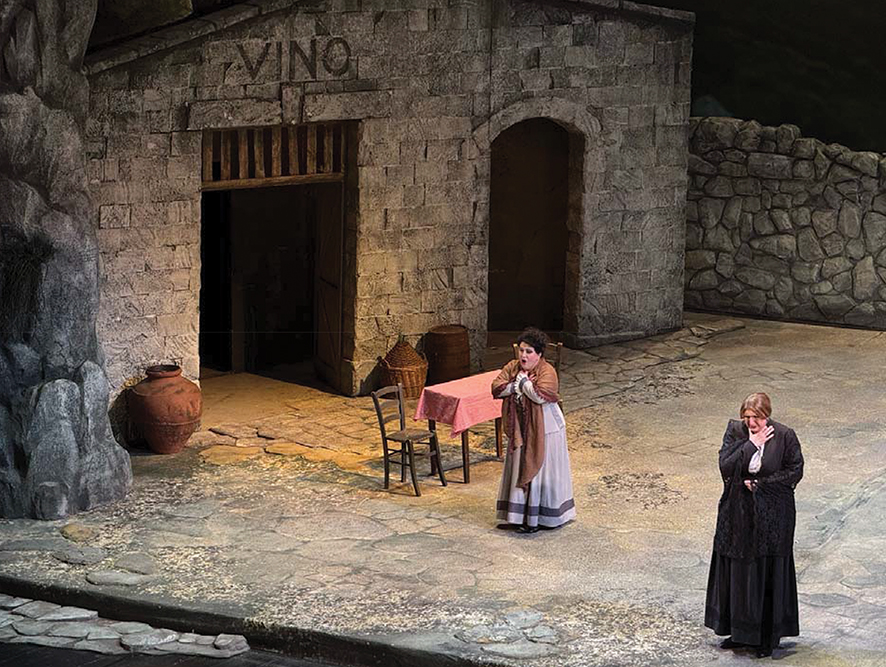
Cavalleria Rusticana — A Woman on Fire
The evening began with Cavalleria Rusticana, that emblematic firework of verismo opera, premiered in Rome in 1890 and first performed in Tbilisi just two years later. It is a work that explodes with sensuality and fatalism: Easter morning in a Sicilian village, a betrayed lover, a duel born of toxic pride.
At the heart of this performance stood soprano Makvala Aspanidze as Santuzza—nothing less than a revelation. Her portrayal was not merely tragic; it was volcanic. From her first entrance, Aspanidze infused the role with feral emotional intensity, refusing any hint of self-pity. Her voice, lush and expansive in the middle register, could pivot to steel in a single phrase. In the famous duet with Turridu, her anguish surged like a tidal wave, yet always with technical control. Her cries were not hysterical; they were judicial indictments. This Santuzza did not weep—she burned.

Opposite her, Giorgi Sturua gave a robust and credible Turridu, equal parts seducer and coward. His “Addio alla madre” was finely sung, though it felt more like resignation than repentance—a subtle but chilling interpretative choice. Alberto Gazale, as Alfio, the betrayed husband, brought gravitas and restrained menace, his baritone grounded in the inexorable logic of masculine vengeance.
Director Victor Garcia Sierra smartly stripped the staging of unnecessary ornament. Italo Grassi’s set evoked both ecclesiastical authority and emotional desolation. The tension between sacred ritual and brutal instinct was masterfully emphasized in the Easter chorus, under the precise direction of Principal Chorus Master Avtandil Chkhenkeli. The community, faceless and pious, stood as silent accomplice to the tragedy unfolding in their midst.
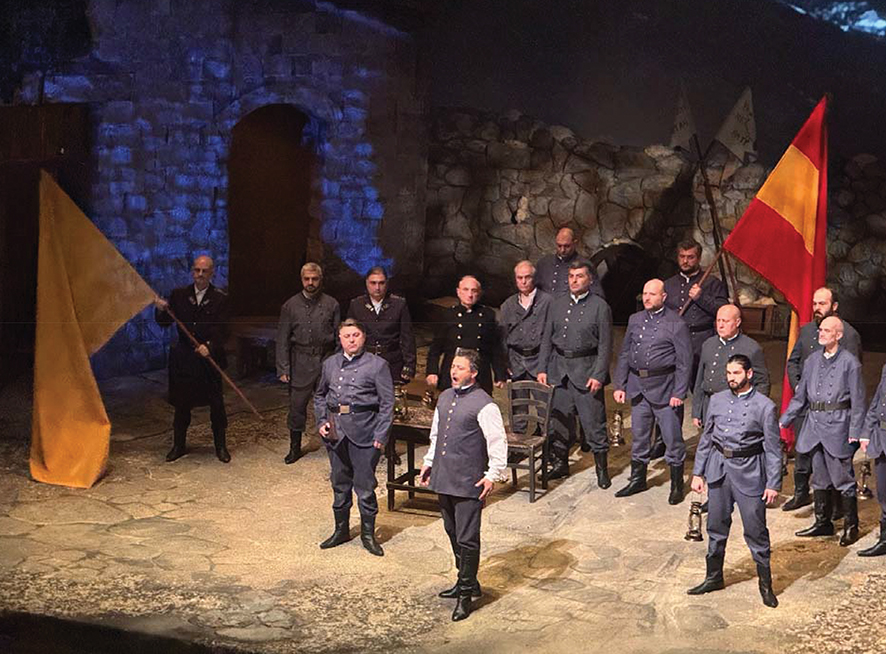
La Navarraise — Love, Weaponized
After intermission, the curtain rose on Massenet’s La Navarraise, a lesser-known but startlingly modern work in its psychological trajectory. Premiered in 1894 and first seen in Tbilisi during the 1895–96 season, the opera is often dubbed a French response to Cavalleria. It compresses operatic melodrama into a war zone, where a woman assassinates a general to prove her love to a man whose father disapproves of her social station. It’s a plot so morally perverse it could easily be mistaken for a Netflix noir—except Massenet’s music gives it aching, terrible beauty.
Irina Taboridze as Anita was captivating in a different register than Aspanidze’s Santuzza. Taboridze’s voice carried a haunting, lyrical clarity, and her performance was all tension and restraint. Anita does not erupt; she calcifies. Her final breakdown—after the murder is complete and her lover recoils from her in horror—was executed with breathtaking control. Her descent into madness was not a fall but a slow, suffocating spiral.
Armaz Darashvili, as Araqui, played the soldier-lover with convincing inner conflict, his sturdy baritone colored by moments of tenderness and panic. Giorgi Lomiseli’s Garrido was perhaps the most inscrutable figure of the evening—arrogant, charming, and oblivious to the tragedy closing in around him.
The production’s aesthetic, shaped by costume designer Ester Martin and lighting designer Stefano Gorreri, created a nightmarish battlefield setting—an anonymous zone of conflict where love becomes a transaction and death the dowry. Gorreri’s caustic blue-lit climax bathed Anita in a symbolic blood-wash that blurred morality and madness into one searing image.
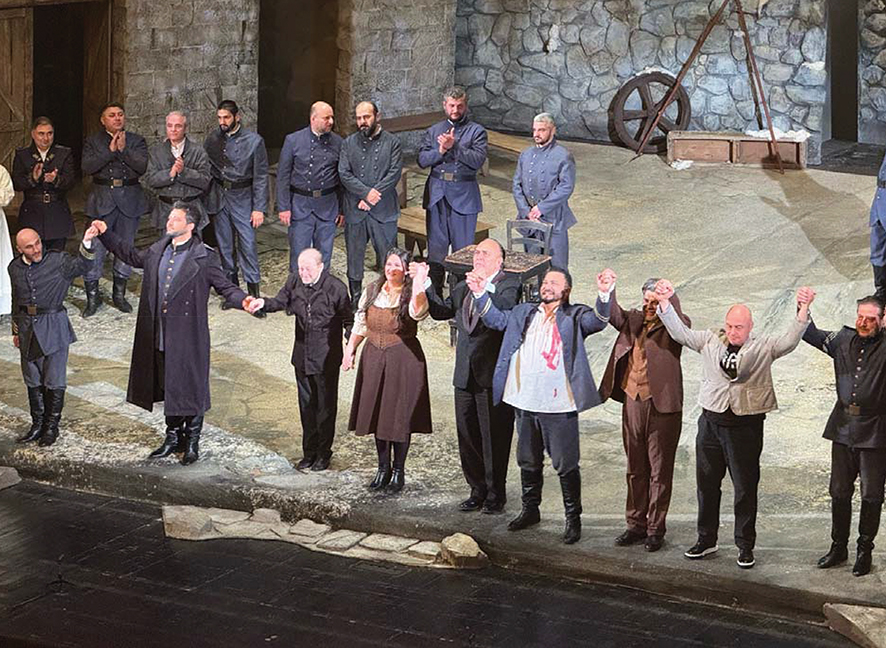
Honoring a National Treasure: Tsisana Tatishvili
The choice to dedicate the premiere to Tsisana Tatishvili infused the evening with additional layers of meaning. Before the curtains rose, the theater presented a moving tribute: a commemorative display showcasing Tatishvili’s personal belongings alongside poignant photographs and performance memorabilia. This homage underscored how a single artist’s passion and brilliance can mold the cultural fabric of an entire nation. In Tatishvili’s memory, the revival was more than a mere resurrection of an opera; it was a personal call to remember and celebrate the echoes of Georgian musical genius that have, for decades, nurtured the national artistic spirit.
By linking the memory of Tatishvili with the revival of La Navarraise, the production seamlessly bridged Georgian operatic heritage with modern artistic innovation. In a society that often grapples with rapidly changing cultural landscapes, the tribute served as a reminder that true artistry is timeless.
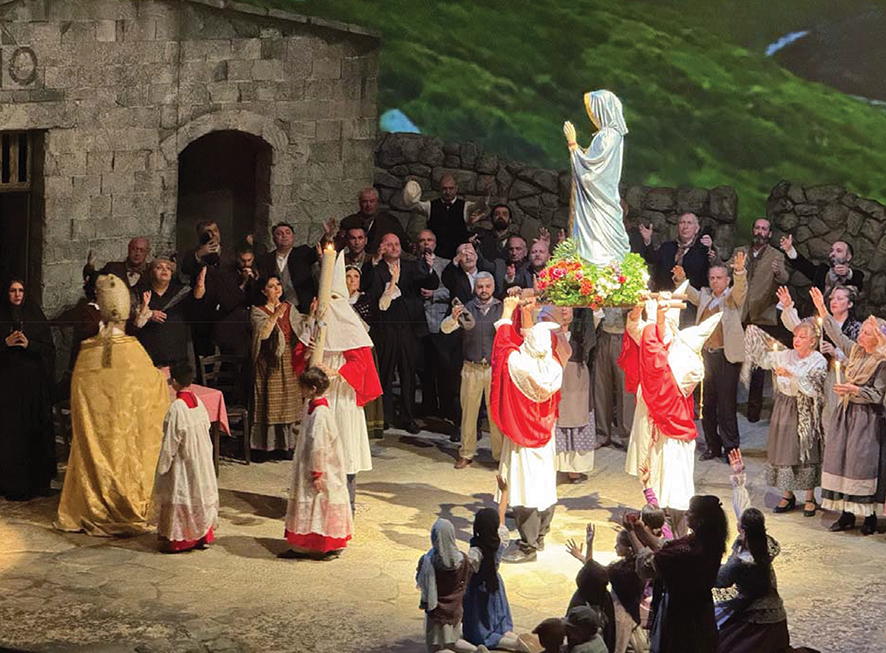
The Ethics of Operatic Violence
As exhilarating as these performances were, one cannot ignore the deeply problematic ethics embedded in both works. Viewed through a contemporary lens, these operas are masterclasses in patriarchal logic: women must either redeem themselves through suffering (Cavalleria) or prove their worth through acts of destruction (La Navarraise). In both, the female protagonists are trapped within male codes of honor and social hierarchy, rendered either monstrous or disposable once they transgress.
Yet these operas also expose those very systems—almost despite themselves. Santuzza’s dignity, Anita’s agency, however distorted, haunt the stage. By emphasizing the heroines’ psychological trauma rather than their romantic passivity, director Victor Garcia Sierra reframes these stories as indictments rather than celebrations of masculine violence.
Still, the audience is left with unease. What does it mean to cheer for a woman’s musical triumph when her narrative arc ends in shame or madness? Can these operas survive the scrutiny of a generation increasingly intolerant of misogyny disguised as melodrama?
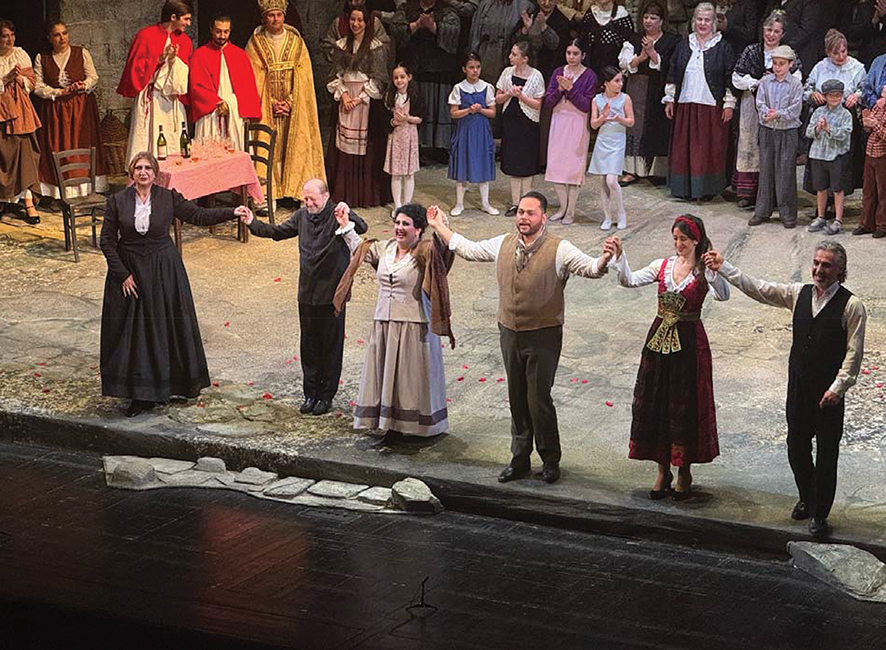
The Sound of a Reckoning
What stood out throughout the evening was the fierce unity of musical and dramatic forces. Under Zaza Azmaiparashvili’s baton, the Tbilisi Opera Orchestra and Chorus offered not just technical excellence, but interpretive daring. The orchestra did not accompany the drama—it revealed it. In Mascagni’s sweeping melodies and Massenet’s brittle dissonances, the musicians found emotion, irony, and dread.
And yet, all this artistry served stories whose moral universe is far from benign. Women who suffer for love. Men who murder for pride. Communities that chant hymns while turning away from injustice. In 2025, what does it mean to restage such operas?
It means, perhaps, to look at them not as affirmations, but as autopsies. To use their beauty to examine the violence embedded in our histories and our stages. Tbilisi’s production did not sanitize these operas—it exposed them. It asked us not to cheer for Santuzza or Anita, but to listen to what they are really telling us.
By Ivan Nechaev

